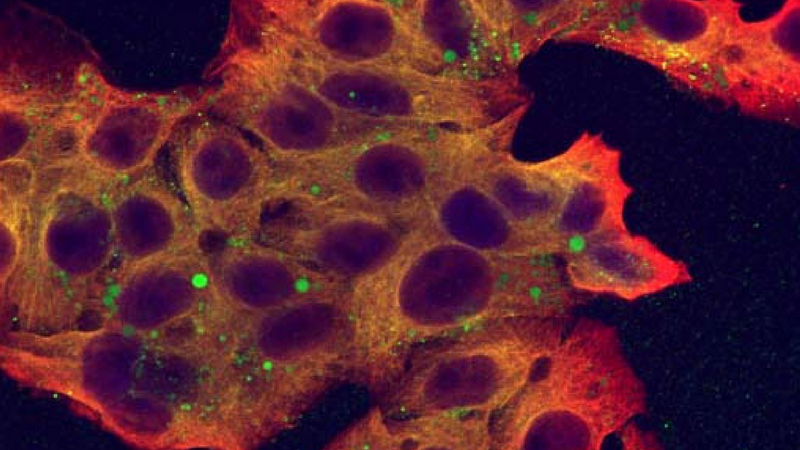Can a High-Tech Chip Conquer Global Health Challenges?

A molecular data company is developing a chip that leverages nanotechnology, optics, artificial intelligence, blockchain authentication, and edge computing to access and analyze molecular-level data in real time. The company says the technology will help redefine how global health challenges like superbugs, infectious diseases, and cancer are conquered.
An Austin, TX-based molecular data company is out to prove that big things can come in small packages. Nano Global is developing a chip in partnership with Arm, a leading semiconductor IP company.
According to Nano, the technology will help redefine how global health challenges such as superbugs, infectious diseases, and cancer are conquered. The system-on-chip (SoC) will yield secure molecular data that can be used in the recognition and analysis of health threats caused by pathogens and other living organisms.
Combined with the company's scientific technology platform, the chip leverages advances in nanotechnology, optics, artificial intelligence (AI), blockchain authentication, and edge computing to access and analyze molecular-level data in real time.
“In partnership with Arm, we’re tackling the vast frontier of molecular data to unlock the unlimited potential of this universe,” said Steve Papermaster, chairman and CEO of Nano Global. “The data our technology can acquire and process will enable us to create a safer and healthier world.”
Papermaster told MD+DI that the chip will present a way to turn the world into the laboratory, rather than taking samples of the world and sending them to the lab. "And that really is a fundamentally different approach to being able to access, monitor, analyze and even impact every form of life function from detecting and controlling infectious disease to chronic conditions and diseases like cancer ... but even into, eventually, areas like agriculture, crop management, and the basic environmental wellness of air and water," he said. "That's obviously a very broad reach, and it doesn't happen overnight."
Because the scope of this technology is so broad, Papermaster said AI is a necessary component of the chip. Training an AI engine on the chip is the only realistic way to be able to process and analyze what's happening at the point of contact with reality, he said. Over time, Papermaster envisions that the chip will be embedded into everyday objects like clothing, toys, and medical devices. Everything that today is still "dumb," he said, meaning anything that exists on its own and is not yet a connected device.
"Over time our chip will light these things up and enable them to be smart," Papermaster said.
For example, he said a product that comes into contact with a patient's skin could be enabled to detect an infection, identify what kind of infection it is, and determine how it should be treated. Perhaps, he said, there would be something embedded into a wound bandage that could be released based on the information the chip interprets. Such a product could be particularly useful in remote areas where healthcare resources are limited, he said.
"This combination platform is really taking it to the world directly instead of sampling the world to bring it inside a lab," Papermaster said.
Partnerships with organizations like Arm are a fundamental part of Nano's business model. Arm's IP is the basis for Nano to build on top of, according to Papermaster.
“We believe the technology Nano Global is delivering will be an important step forward in the collective pursuit of care that improves lives through the application of technology,” said Rene Haas, executive vice president and president of IPG at Arm. “By collaborating with Nano Global, Arm is taking an active role in developing and deploying the technologies that will move us one step closer to solving complex health challenges.”
Additionally, Nano will be partnering with several institutions, including Baylor College of Medicine, and the National University of Singapore, on broad research initiatives in clinical, laboratory, and population health environments to accelerate data collection, analysis, and product development.
The initial development of the chip is in process with first delivery expected by 2020.
Despite a number of impressive developments being made to address antibiotic-resistant bugs and other major health challenges of our time, Papermaster said, "the reality is we're not winning."
That's why, he said, Nano is trying to take a step back and think about new approaches and tools that could fight these large-scale problems.





